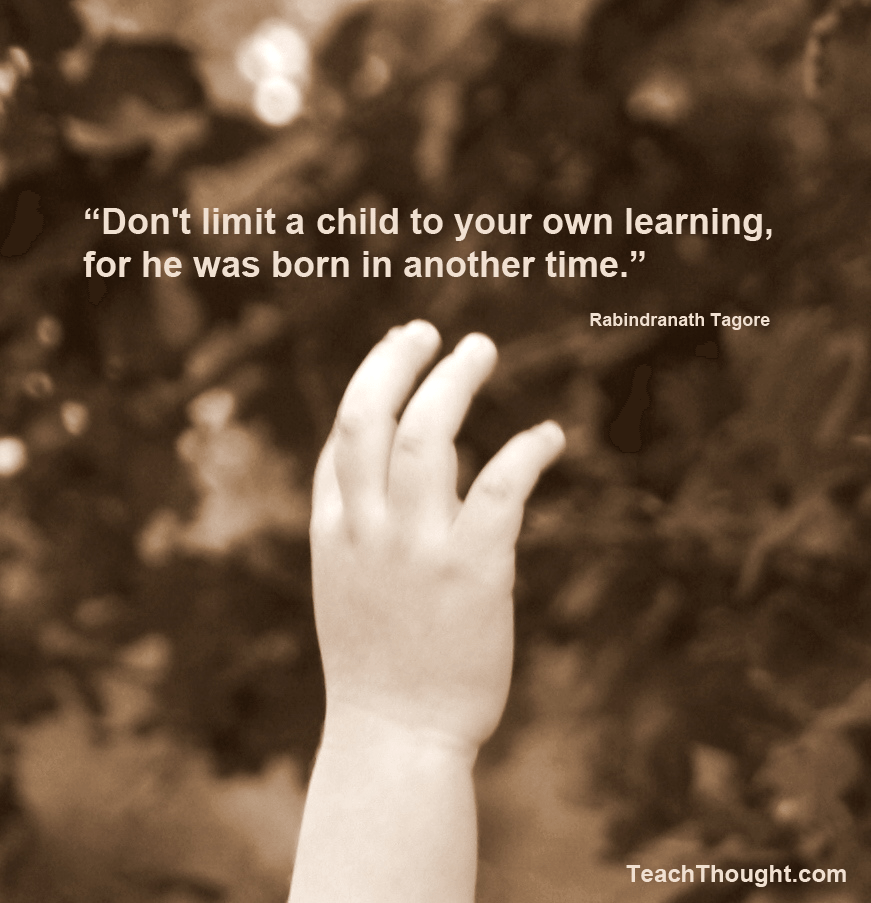by TeachThought Staff
Do not limit a child to your own learning, for they were born for another time.
R Tagore
While each generation is unique, possessing its own challenges, opportunities, and cultural contexts, the methods of teaching and the knowledge passed down often reflect the values and norms of previous eras.
This gap between the present generation’s needs and the past’s teachings can limit children in various ways, inhibiting their ability to engage with and thrive in their contemporary world fully.
From the moment they enter the world, children are shaped by the values, beliefs, and practices of the society they are born into. However, the education they receive is often heavily influenced by traditional pedagogical approaches and curricula that may not adequately address the complexities and demands of the modern age. This can result in a disconnect between what children are taught and what they need to navigate and succeed.
This limitation surfaces through an outdated curriculum that fails to equip children with the skills and knowledge necessary for the rapidly evolving job market. In an era of technological advancement and globalization, traditional subjects and teaching methods may not adequately prepare children for the demands of a digital economy. For example, a focus on rote memorization and standardized testing may prioritize regurgitating facts over critical thinking, problem-solving, and adaptability skills essential for success in contemporary workplaces.
Furthermore, underscoring outdated societal norms and biases through education can hinder children’s ability to challenge and transcend systemic inequalities. Historical narratives that prioritize the achievements of certain groups while marginalizing others can perpetuate stereotypes and reinforce power dynamics that limit children’s understanding of themselves and others. This can have long-lasting implications for social cohesion and justice, as children may internalize and replicate these biases in their interactions and decision-making processes.
To address these limitations and better serve the needs of contemporary children, educators, and policymakers must embrace a more dynamic and inclusive approach to education. This requires a willingness to adapt pedagogical methods and curricula to reflect the realities of the modern world and a commitment to fostering critical thinking, creativity, and empathy in the classroom. By empowering children to question the status quo and think independently, we can ensure that they are better equipped to meet the challenges and opportunities of their generation and contribute meaningfully to society.
Children Are Born For Their Own Time
Below is a strong argument we’ve seen for the constant need to evolve the mechanisms, curriculum, and delivery system for how people learn.
It also explains the generational chasm that can hinder such progress as well. We instinctively want to teach how we were taught, even if we dress it up with technology and ‘cutting-edge trends.’
The quote also works if you change the ‘in’ to ‘for.’ In fact, that’s how we read it the first three times we saw it.

Image attribution flickr user megabu7.
